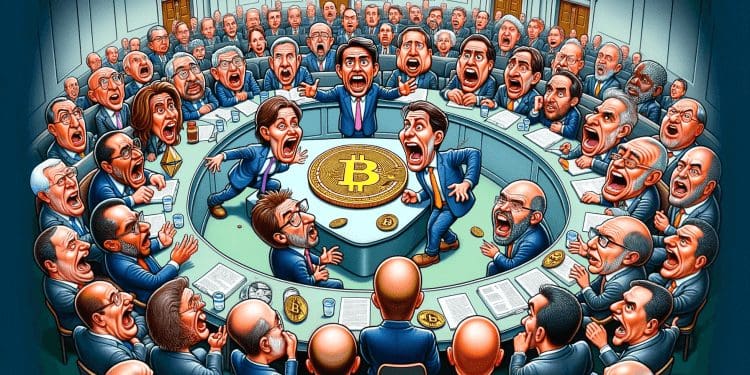- Paul Grewal of Coinbase criticizes the U.S. GAO for a report suggesting crypto’s role in evading sanctions.
- Grewal points out the report’s admission that crypto is inefficient for circumventing sanctions.
- The report’s findings are used by Senator Elizabeth Warren to advocate stricter crypto regulations.
Paul Grewal, the chief legal officer at Coinbase, has voiced strong objections to a recent report by the United States Government Accountability Office (GAO). The report discussed cryptocurrency’s potential role in evading economic sanctions. Grewal expressed his concerns on a social media platform on January 22, highlighting what he sees as significant flaws in the GAO’s analysis.
Challenging the Report’s Conclusions
Grewal took to social media to express his dissatisfaction with the GAO’s approach. He accused the office of not conducting a thorough comparative analysis and unfairly targeting an industry that invests heavily in legal compliance. Despite the report’s claims, Grewal pointed out that it concedes digital assets like Bitcoin are, in reality, not effective tools for bypassing sanctions.
Report’s Mixed Messages
Interestingly, the GAO report, published on December 13, 2023, acknowledges the limitations of cryptocurrencies in evading sanctions. It highlights the decentralized nature and public ledger of cryptocurrencies, which can actually help U.S. agencies and analytics firms trace transactions and identify illicit activities. Furthermore, the report notes that the use of digital assets as a payment method has its own limitations, and implementing global standards could enhance Anti-Money Laundering (AML) compliance.
Political Reactions and Global Standards
Senator Elizabeth Warren used the report to promote tighter regulations on the cryptocurrency industry, citing the need for crypto companies to adhere to the same AML standards as other financial institutions. However, critics were quick to point out that the report mentioned only one instance of cryptocurrencies being used to avoid sanctions, involving a Chinese party. This criticism reflects a broader debate on the role of cryptocurrencies in the global financial system.
Major regulatory bodies around the world have been working to integrate cryptocurrencies within AML guidelines. Europe, for instance, has passed the Markets in Crypto-Assets Regulation, while Asian countries like Hong Kong, Japan, and Singapore have also established strict regulations for crypto service providers.
An important aspect often overlooked in such discussions is the relatively small amount of cryptocurrency used for illicit purposes. Contrary to popular belief, less than 1% of the total circulating crypto supply is involved in illegal activities, a much lower proportion compared to fiat currencies like the U.S. dollar. Additionally, the transparency of the public ledger system has made it difficult for criminals to move stolen or hacked crypto funds, often leading to their identification and intervention by crypto exchanges.
This ongoing discourse around the regulation and use of cryptocurrencies highlights the need for balanced and well-informed policy decisions in this rapidly evolving financial landscape. Grewal’s criticism of the GAO report underscores the complexities and nuances of regulating a technology that is still in its infancy, yet rapidly gaining global significance.














